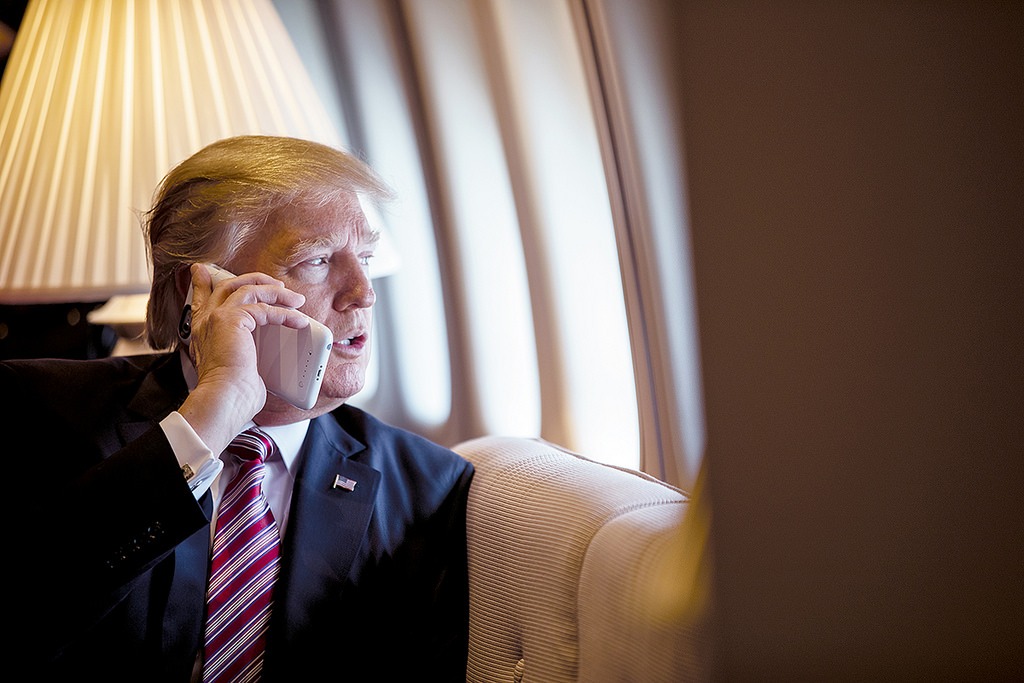
Twice in a week’s time, President Donald Trump embraced top Democrats, while keeping Republican leaders at arm’s length.
Mr Trump and congressional Democrats are apparently committed to a deal that would allow young undocumented immigrants to remain in the US in exchange for tougher border security measures, excluding funding for a wall on the Mexican border.
Mr Trump came to office promising a hard line on immigration, saying he would build a wall along the entire US-Mexico border to keep out “rapists” and “bad hombres”. Last week, Republican congressional leaders were excluded from President’s dinner with Chuck Schumer, the top Senate Democrat, and Nancy Pelosi, the Democratic leader in the House of Representatives, at the White House, where they outlined an initial plan to save the Deferred Action for Childhood Arrivals, an executive action known as Daca that offers amnesty to immigrants who were brought to the US illegally as children, the so-called Dreamers.
Roughly 800,000 people received amnesty under President Barack Obama, allowing them to remain and work in the US without fear of deportation. The average Daca recipient came to America at the age of six. Mr Obama enacted the programme after Congress failed to pass comprehensive immigration reform in 2012. Mr Trump’s attorney-general Jeff Session declared Daca unconstitutional and an overreach of authority. The heads of US big companies – from Tim Cook to Mark Zuckerberg – opposed terminating Daca without a viable replacement, arguing that Dreamers are a vital part of the US economy.
Mr Trump rescinded the Obama-era programme under mounting pressure from the right, but gave Congress six months to find a legislative solution to allow Dreamers to stay in the US.
Relations between the Trump White House and Republican leaders have become more fraught as the Republican Party failed to pass any big legislation, despite controlling both houses of Congress. Immigration has vexed the fractious Republican Party since President Ronald Reagan signed immigration reform in 1986, so it is unlikely that Congress will overcome its dysfunction to find common ground.
Mr Trump’s deal with Democrats to lift America’s debt ceiling and keep the government funded until December and allocate 15 billion dollars in aid package for victims of hurricanes Harvey and Irma was seen as a snub to Paul Ryan, speaker of the House of Representatives, and Mitch McConnell, the Senate majority leader, who were pressing for an 18-month extension of the debt limit, which would have pushed the matter to after next year’s midterm elections. Mr Ryan had called a plan backed by Democratic congressional leaders to tie a three-month increase in the nation’s borrowing authority to a package of hurricane relief as ridiculous. Steven Mnuchin, Treasury secretary, had warned that the US would run out of money to pay its debt on September 29.
Mr Trump staved off a looming debt ceiling crisis by sitting down with the opposition, but he will not be able to overhaul the US tax code and pass immigration reform without the support from the Republicans. Mr Ryan wants to have a tax reform signed into law by the end of this year. However, a timeline for the first major rewrite of the tax code in 30 years seems too ambitious.
Official White House Photo by Shealah Craighead